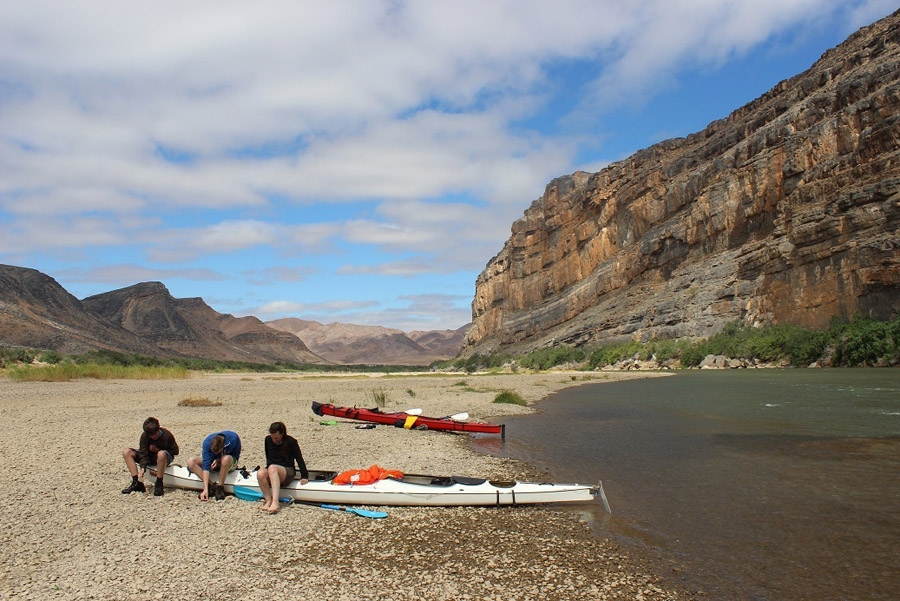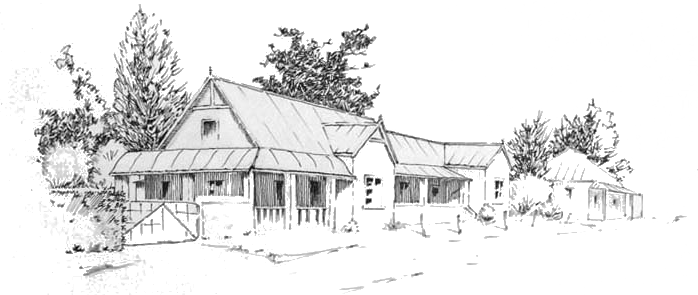I’ve just returned from a holiday with the family and I cannot recall ever being so exhausted after seven days of ‘rest and relaxation’.
We spent our time canoeing and fly fishing the lower Orange River in the Richtersveld.
After leaving Cape Town we stopped overnight at the hot springs in Citrusdal and finally started to feel like we were on holiday. The sense of relaxation soon ended however as we were then confronted by endless roadworks on the way to Vanrhynsdorp - I cannot remember them being that bad on previous trips
After a slow six hour journey we found ourselves at the border post with Namibia and realised that our travails had not ended. One official, a computer from the pioneering era of Bill Gates and a genuine dot-matrix printer!
Once across the border, it was only a short drive in stultifying 40 degree heat to our camp site at Amanzi, about 20 km downstream from Vioolsdrift.
Click in images to enlarge
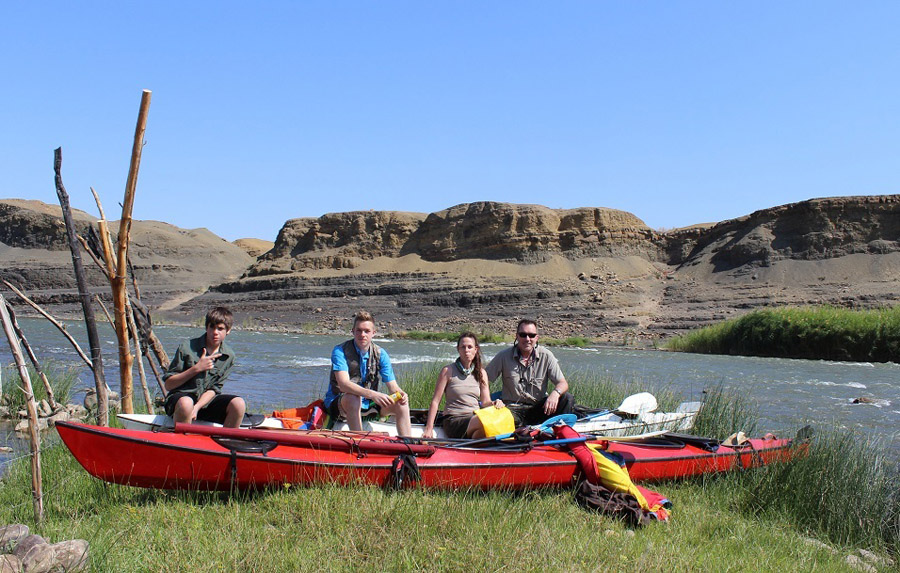
The D-team: From left to right - Daniel, David, Des and Dawid.
We rose at dawn each day and in the cool of the early morning we would paddle upstream or down searching for rapids which are the favoured habitat of smallmouth yellowfish.
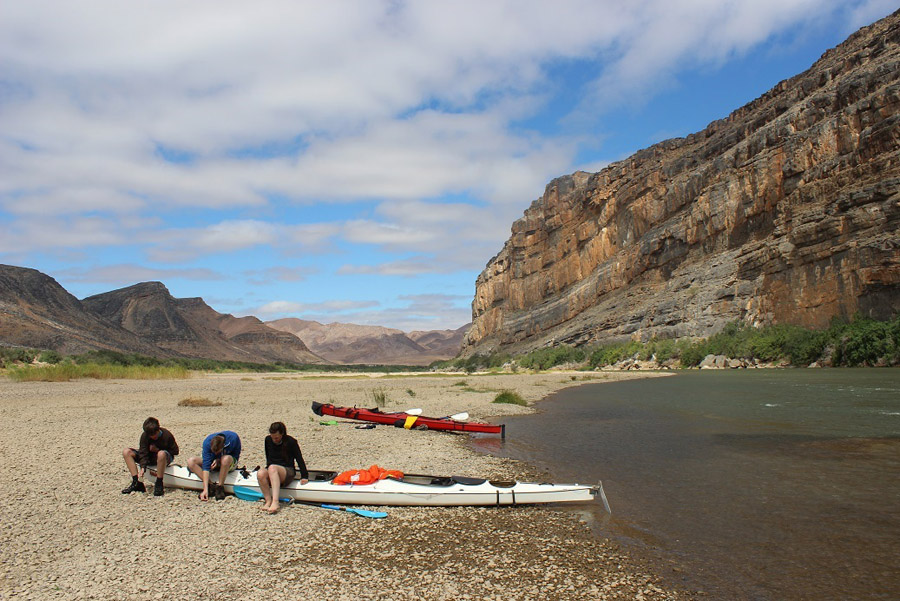
The tandem kayaks enabled all areas of the river to be explored
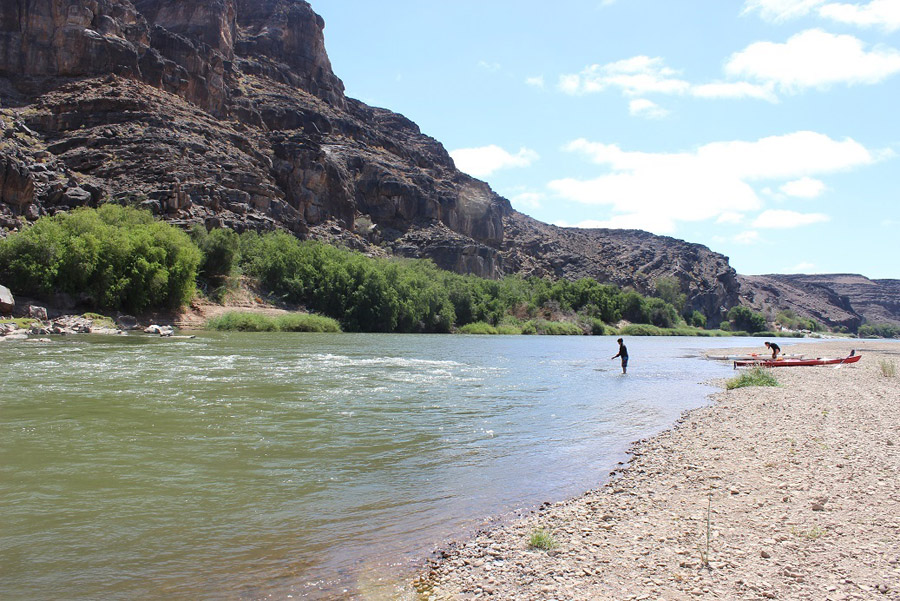
A typical scenic Orange River in the Richtersveld
We would beach the kayaks, assemble our fly rods and would quickly be into fish. Both my sons quickly acquired the necessary nymphing techniques. My reward was the smiles and that goes for children of ALL ages.
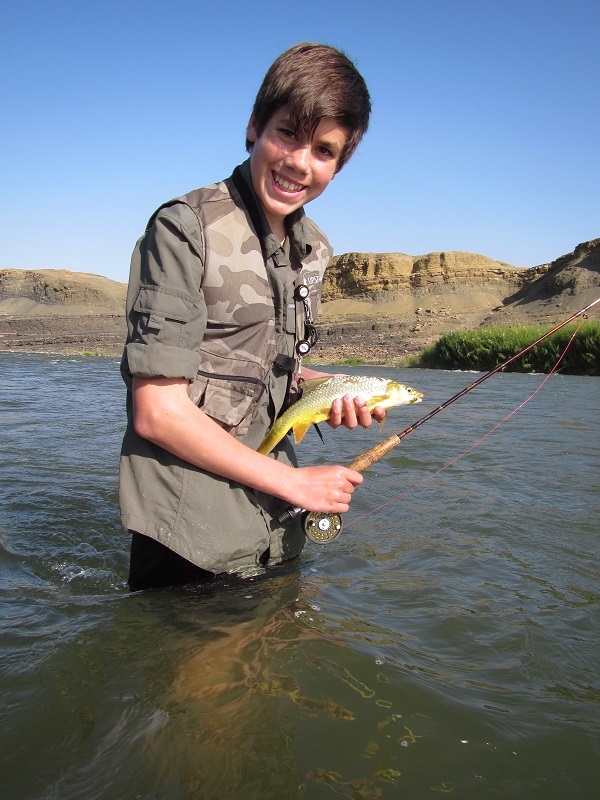
10. Daniel and yellow. Smiles abound with fish in hand
Des my wife, watching the fun, quickly decided that she wanted to try and also started catching fish. I spent a lot of time changing flies and sorting out line tangles and I resolved that before our next Richtersveld trip I would ensure that that the family practised casting and knot tying.
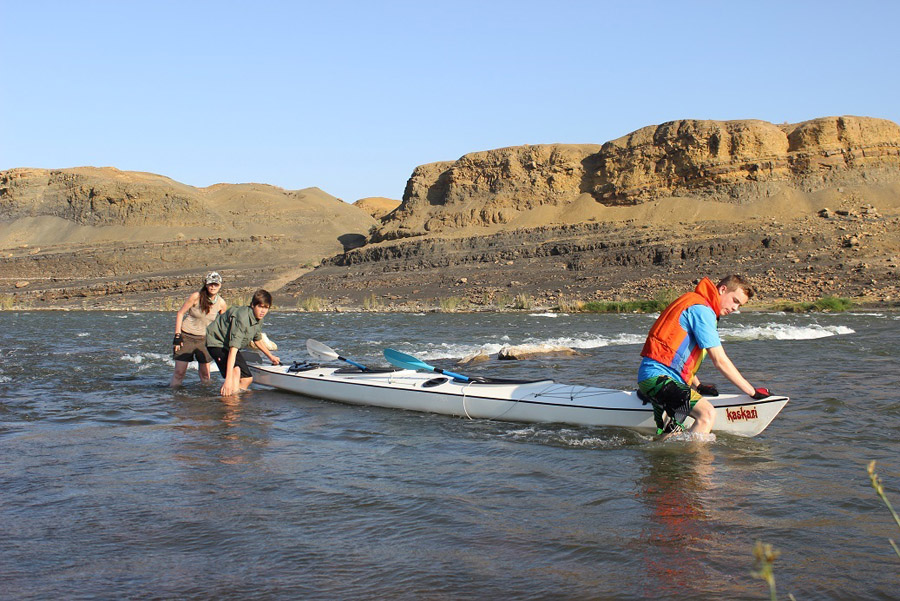
Dragging the kayaks up through the rapids was easier than it looks
Once the morning starting getting hot we would return to camp for brunch. In the heat of the day we would relax in the cool shadows of the campsite trees until the late afternoon when we fished again, returning to camp just before dark to light the fire and start cooking supper.
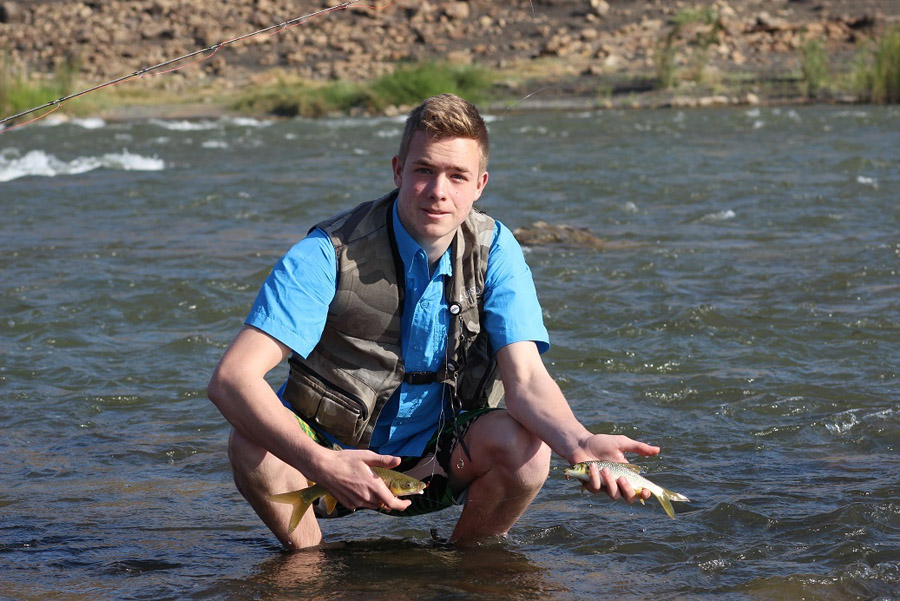
David and a little double. A double hook-up make you feel as if you have a whale on the line
We caught three species, small and largemouth yellowfish and moggel. We caught only one largemouth yellowfish but about sixty smallmouths between us.
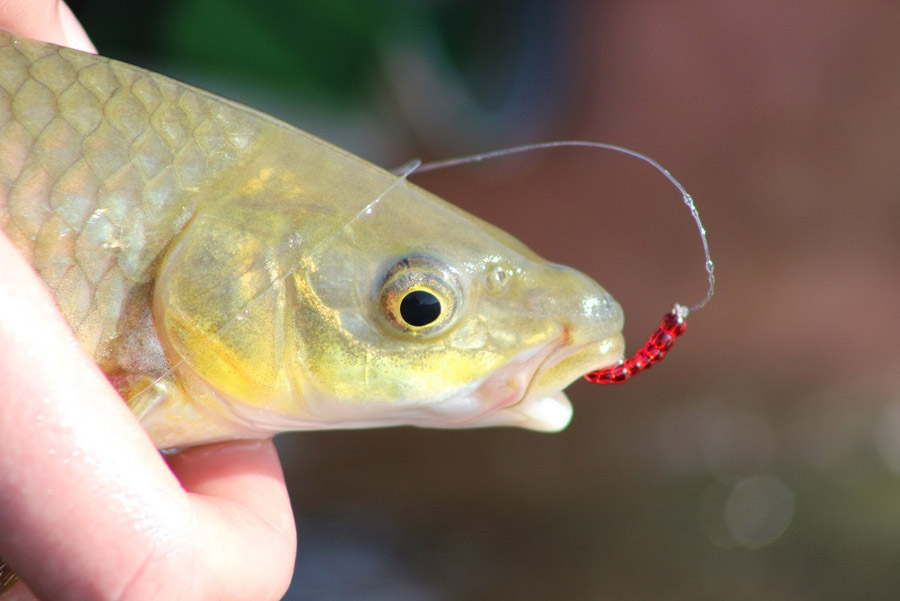
Little Smallmouth yellow, caught on a glass bead San Juan worm – an easy-to-tie-fly for the youngsters
Our most successful fly was an un-weighted San Juan worm fished on the middle dropper of a three-fly rig. This enables the San Juan to move freely in the current. Bead head Brassies were very successful and the most successful pattern colours were dark green, tan and brown.
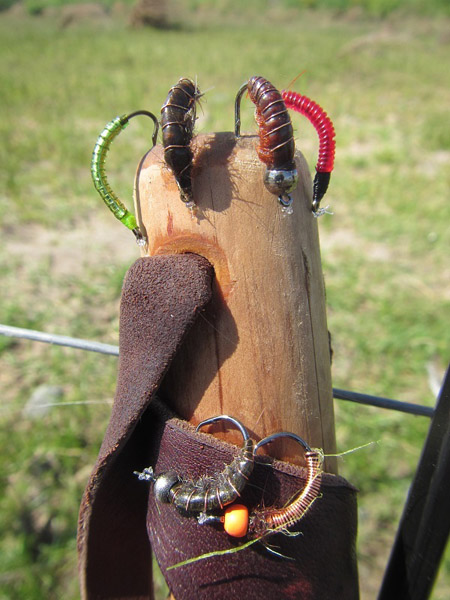
Flies on the handle of my wading staff, an essential piece of equipment when wading the rapids
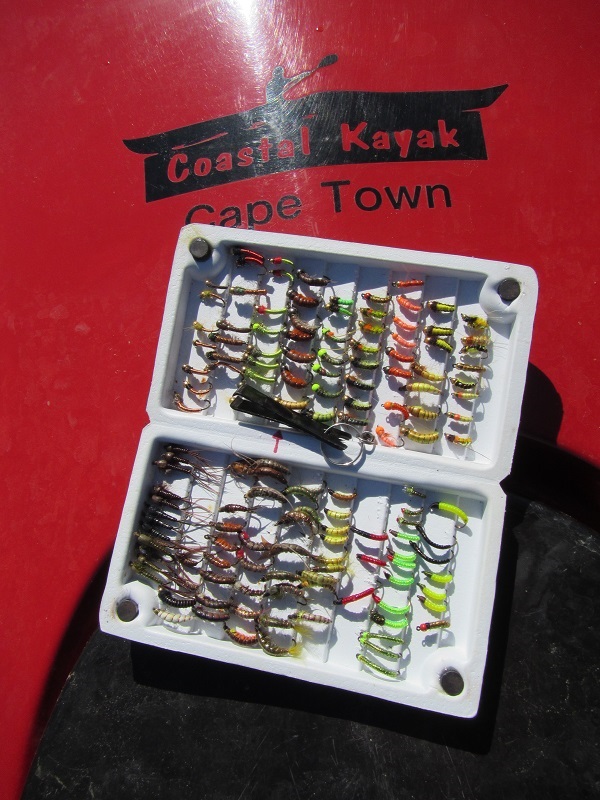
Flybox at the beginning of the trip. It looked like a gap-toothed-smile at the end
The fishing highlight was on one occasion, at sunset, when we found smallmouth yellows feeding in very shallow water and we were able to target specific fish. Once hooked, they took off at great speed towards deeper water, often making a spectacular bow wave in the ankle deep water.
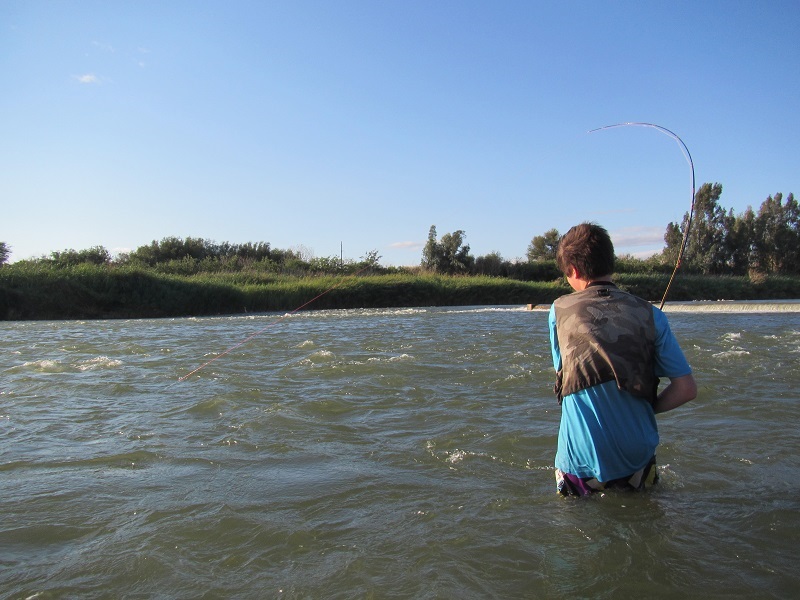
Daniel fighting a yellow
The landscape is breathtakingly beautiful with a thin ribbon of green along the river bank contrasting strongly with the aridity of the surrounding desert.
We enjoyed the two-seater kayaks which proved much faster than a canoe and they allowed us to cover long distances and reach sections of the river which had not had a lot of fishing pressure.
The downside is that they are not very manoeuvrable and we quickly learned that it was wise to avoid the really rough sections of the rapids. If you are contemplating fishing in this way be advised that space is relatively limited in the kayak and four piece rods are much easier to transport than two or three-piece models.
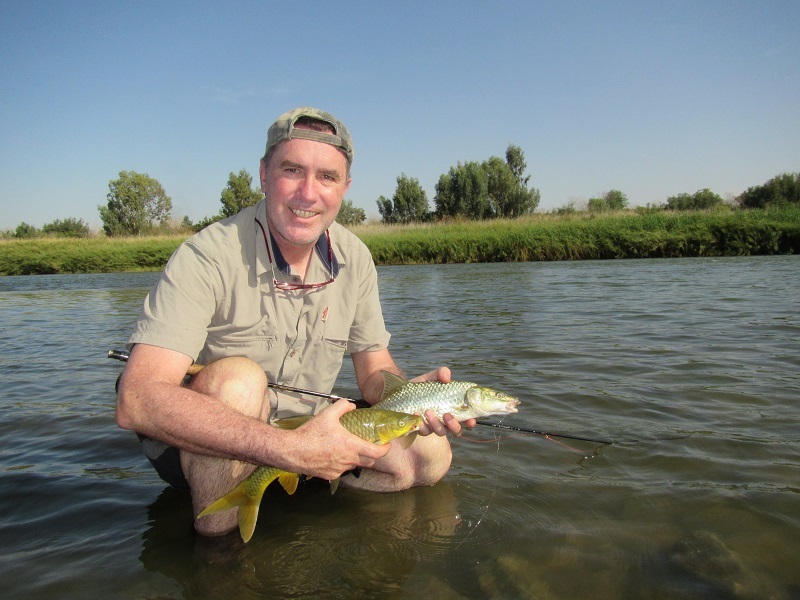
Dawid and a double
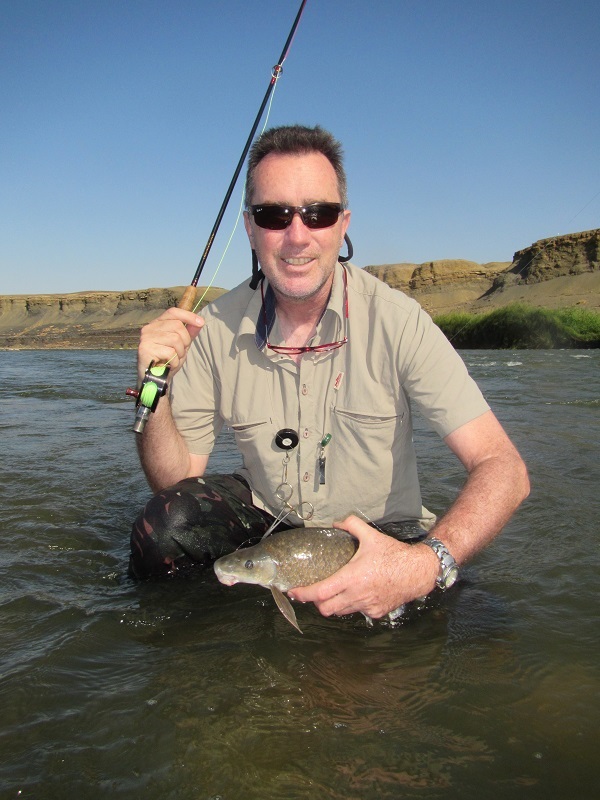
Dawid and a Muddy. They pull slower, but harder than the yellows
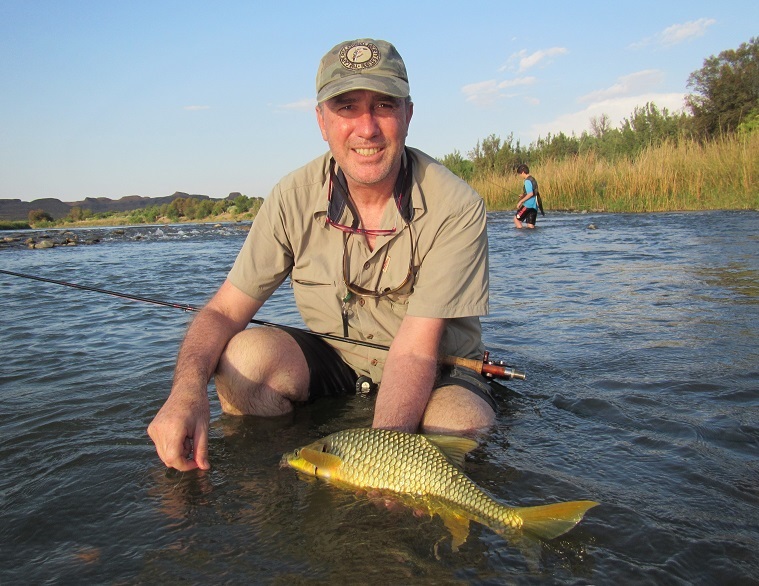
14. The largest Smallmouth yellow of the trip, caught in ankle deep water, after spotting it feeding
There is a range of tough, waterproof compact cameras available which are ideal for such trips and I was very happy with the performance of my Canon D30.
Our trip took place during the school holidays so there was quite a lot of traffic on the river and the Amanzi campsite was also fuller than we had experienced on previous trips. It was, however, tidy and well run and everyone was extremely friendly.
All in all a memorable trip and we will certainly return.

